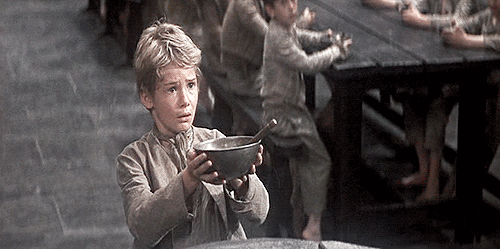The most important bond we can ever have is the bond between a mother and child, we are relational by nature! Our basic instincts for connection, security, and safety is hardwired into our hierarchy of needs. So, what happens when our caregivers were unable to provide us with sufficient emotional bonding in early childhood? Our emotional wounds often leave us feeling like wounded children as we step into the world; consequently, leading us down a path of neediness.Emotional Neediness and Its Causes
We go through life looking for love in all the wrong places, forcing others into positions to fill this childhood void. This search for validation often manifests in unhealthy behaviors, such as becoming overly dependent on partners, family or friends to meet our emotional or material needs. When these needs aren’t met, it can lead to feelings of inadequacy, loneliness, and even depression.
I am no stranger to this wound, and it took a herculean dose of self-awareness and self-honesty to transform it into empowerment. Understanding the root cause of neediness is the first step towards healing. By acknowledging our past traumas and working through them, we can start to rebuild our sense of self-worth and independence.
Early Childhood Wounds and Attachment Theory
Attachment theory helps us understand why some people develop neediness. When a child does not receive adequate emotional bonding from their parents, especially their mother, it can lead to an insecure attachment style. This style is characterized by a constant need for reassurance and fear of abandonment.
Understanding this theory can help individuals recognize patterns in their behavior and relationships, providing a pathway to healing.When this wound is active, no matter how much an individual tries to meet the needy person’s demands, their needs are never satisfied. They may gravitate towards codependent relationships with a people pleaser who has a strong desire to feel needed.
Understanding the Impact of Neediness
If you’re asking yourself, “Why am I so needy for affection?” you’re not alone. Living a life driven by an overwhelming need for security, comfort, and intimacy often leads to suffering. This can cause us to endure familiar painful experiences in different relationships, reliving trauma and reinforcing feelings of unlovability and unworthiness.
Neediness carries a stigma and affects how we show up in our relationships. Awareness of the people we loved who pulled away, the dignity some people denied us, our own lack of self-respect, and our blind spots about how demanding we are can be a painful realization.
Conversations about neediness are often judgmental or lacking compassion, which can further degrade us. Therefore, a trigger warning is issued for those with wounds around neediness.
It’s human to desire love, connection, and support; however, where do we draw the line between having healthy expectations and becoming too dependent on others for our nourishment?
What is Neediness?
Neediness in relationships is an intense desire for closeness, affection, support, or reassurance that exceeds what is usually required within a healthy relationship. Demanding people feel an intense desire for love, safety, security, reassurance, and connection. They default to filling that need by reaching outwards for validation and reassurance, frequently overlooking their inner resources.
Etymology of the word needy
Needy is a word inherited from Germanic. It comes from the root word neodi meaning ”very poor or indigent’’. It is rooted in a poverty or lack consciousness. The word originally refers to finances, but in this article we will be focusing on neediness as it pertains to emotions.

Behaviours labelled as needy often have deeper psychological roots. Some of these may be explained through researcher Abraham Maslow who constructed a diagram that describes our hierarchy of needs. See our article where we break down how to enhance your self-worth and how it influences your personal development.
When this wound is active, no matter how much an individual tries to meet the needy person’s demands, their needs are never satisfied. They may gravitate to codependent relationships with a people pleaser who has a strong desire to feel needed. This is a shadow dance as both the martyr and the the person receiving are two sides of the same coin.
Why is Neediness Unpleasant to Experience?
A quick search on synonyms for needy highlights the constitution of a demanding person: bankruptcy, barrenness, beggary, debt, deficiency, deficit, depletion, destitution, difficulty, distress, emptiness, famine, hardship, impoverishment, inadequacy, indigence, insufficiency, lack, meagerness, necessity, need, pass, paucity, pauperism, pennilessness, pinch, poorness, reduction, scarcity, shortage, starvation.
When the desire for a relationship with others goes from desire to dependence, it will often have the opposite intended effect. It’s an unfortunate reality that neediness is eventually met with an unwillingness to acquiesce to our needs. We may end up driving away the exact people we wanted connection with. Some articles on the web even state that neediness is linked to a narcissitic personality disorder.
Narcissism is a self–centered personality style characterized as having an excessive preoccupation with oneself and one’s own needs, often at the expense of others.
Demanding and Needy Behavior
Although our initial desire to have our wants satisfied may be granted, gradually the never-ending list of needs turns into demands. Constant demands on another person’s resources, whether it’s in the form of their time, energy, finances etc is experienced as a form of entitlement.

The demanding person will overlook another individuals needs as it relates to creating balance and prioritising their own life.
To get their needs met, a needy person may resort to manipulation tactics like offering money, to overstep the other person’s boundaries. Being excessively demanding is when you unrealistically expect to be made a priority in a person’s life.
An example of this is not listening when a person has communicated their boundaries and asking persistently. Or they may ask an individual to change their schedule to accommodate their own plans or goals. It is the irrational belief that you should be someone else’s priority.
We are so focused on having our needs met that we become self focused and therefore oblivious to other people’s needs. This type of self focus makes more debits than it makes deposits.
This wound drives us to seek safety and to feel loved but when we have not built this foundation within ourselves, we are like a baby with a bottle of warm milk. Even after the bottle is empty, we continue to suckle on the teat.
When we are addressing neediness, it’s important not to treat only the symptoms. Simply ‘acting’ or ‘looking’ as though you are ‘independent’ will not suffice. To get to the root of what is causing the neediness in the first place, you need to confront the problem.
Neediness is Rooted in Fear

The best way to understand and eliminate neediness and clinginess in a relationship is to first acknowledge what is causing it. Fundamentally neediness is rooted in fear.
Neediness is rooted in fear:
- Fear of abandonment
- Fear of being alone
- Fear of rejection
- Fear of loss
When we are clingy we look outwardly for our sustenance and it might scare us as we cannot control the external source of nourishment, so we hold on tightly. This is what forms the basis of an insecure attachment style.
Early childhood wounds
Attachment theory states that the way a person forms emotional bonds with their parents or primary caregiver informs the attachment style they form in their relationships.
When a child experiences issues with emotional bonding from their mother, it may develop into insecurities, feelings of distrust and an anxious attachment style. As we grow this early childhood wounding bleeds into our relationships with others. This insecurity unconsciously causes us to seek constant reassurance from our circle.
Doing everything my partner wanted to do without considering my own needs, was one of the ways this anxious attachment played out in my romantic relationships. I believe this is something many women, and also men can relate to.
In these dynamics, we allowed others to constantly violate our boundaries out of fear of our partners leaving.
The following are some indicators of an anxious attachment style:
- Emotional distress, discomfort at the thought of being alone
- Codependency, which is prioritising the needs of others over our own
- Poor self-worth, insecurities, or concerns about ourselves
- Fear of being abandoned
- Harbouring negative feelings like envy or mistrust
- Feeling unworthy of affection from others
- Requiring validation from others instead of feeling safe in yourself
- An aversion to self soothing and regulating your own nervous system
- An obsession with interpersonal relationships
Healing from Neediness

Set limits and adhere to them. Give yourself some time to yourself. Seek methods to boost your confidence and sense of self-worth. You might profit from self-improvement techniques like:
- Taking responsibility, self-honesty, and recognizing your patterns
- Think before you ask; are you respecting and recognizing other people’s boundaries?
- Developing self-compassion
- Self-soothe and learn to regulate your own nervous system
- Becoming more assertive about your boundaries and feeling at ease saying “no”
- Recognize your strengths and capabilities
- Engage in empowering activities
- Take on challenges on your own
- Speak positively and lovingly to yourself by becoming conscious of your negative self-talk
- Gain self-sufficiency skills
- Be supportive of others
- Surround yourself with uplifting, encouraging relationships
- Recognize relationship patterns that are codependent
17 Healing affirmations for neediness
Learning how to prioritise your self worth is the key to learning how to wean yourself off of being too dependent of others. Try validating your own self worth with these affirmations:
- I am somebody’s child too
- I am valuable and worthy of my own resources
- I love myself first, my inner resources are golden
- I have inherent value
- I am deserving of love, respect and dignity, therefore I give that to myself first
- I show others how to treat me
- I am responsible for myself
- I am full and have a rich well of resources within me waiting to be utilised
- I have self respect and command that from others
- I release the need for approval
- Even when I am all alone, I am alive and I exist
- I am learning to turn inwards for nourishment
- I am an excellent parent to my inner child
- I have a clear mental picture of my inner child and I honour this very important connection
- When I am alone, I use this quality time to recharge and nourish myself
- I am safe inside my own skin – It is safe to be me
- I do not need others to validate my existence
Conclusion: Healing and Growth Through Understanding Neediness
Neediness is often rooted in past wounds and the fear of abandonment, rejection, and loss. By understanding the underlying causes of our emotional dependencies, we can begin to heal and transform our relationships. This journey requires self-awareness, self-compassion, and the courage to confront our patterns and fears.
Living with a constant need for validation and security can lead to suffering, but it also presents an opportunity for profound personal growth. By addressing these deep-seated issues, we can build healthier, more fulfilling relationships and a stronger sense of self-worth.
To further explore how to enhance your self-worth and navigate the complexities of neediness, consider reading our related articles. How Can Self Worth be Improved Using Maslow’s Hierarchy of Needs? delves into practical steps for boosting your self-esteem through Maslow’s framework. Reflecting on your experiences and behaviors is crucial for personal growth, as discussed in Why is Reflection Time Important?. Additionally, learning to set boundaries and prioritize your needs is essential for emotional well-being, which we explore in Conscious Selfishness: Unlocking the Power of Sacred “No” for Personal Growth.
By integrating these insights and practices into your life, you can transform neediness into empowerment and build a more resilient, self-sufficient self. Remember, understanding and compassion for yourself are key to overcoming neediness and fostering healthy, balanced relationships.






5 Reflections
Share your reflection below... I’d love to hear how this transmission lands for you.
This reflection space is part of a living temple of dialogue, a place for insight, resonance, and respectful exchange. All comments are read with care and may be lovingly edited for clarity, formatting, or safety before publication. Please share from your heart, speak with kindness, and keep this space high in frequency. Promotional links, aggressive language, or off-topic content will be removed. Thank you for honoring the spirit of this sanctuary.